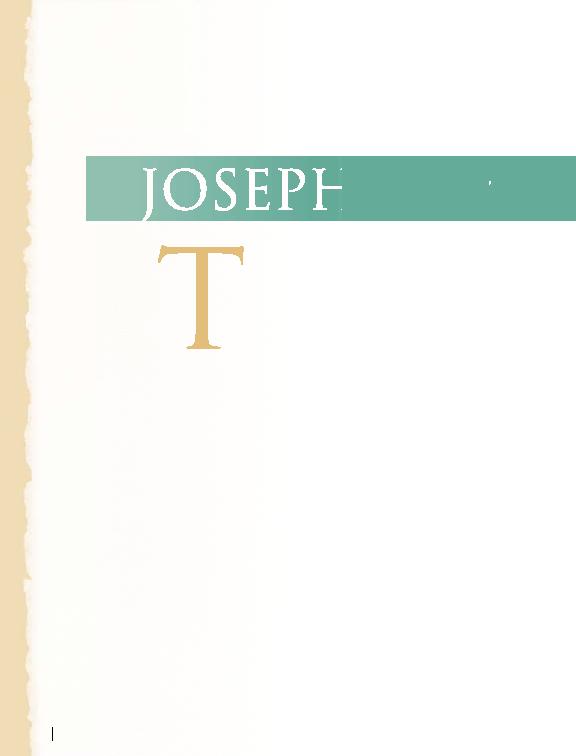
H
OF ARIM AT
A
A HEA
24
The War Cry | APRIL 2015
wo men named Joseph fi gure prominently in
the New Testament. One is Jesus' earthly father, who
is mentioned on several occasions in the New Testa-
ment in the relational or incidental sense, such as
"the carpenter from Nazareth," or in reference to
his wife Mary. Many scholars believe Jesus referred to
God as Father, a term used sparingly in the Old Testa-
ment, in honor of His own earthly father. The other Jo-
seph in the New Testament is Joseph of Arimathea.
He is referenced by name and hometown four times in the gospel accounts.
We know of Joseph's community, religion, actions, associations and reputa-
tion. Each of the four gospels identifies Joseph as "from Arimathea."
(Arimathea cannot be found on a modern map; archaeologists have never
located it.)
Regarding Joseph's faith, Mark 15:43 tells us that Joseph was "a promi-
nent council member, who was himself waiting for the kingdom of God"
(NKJV). Luke 23:50a also describes Joseph as a council member.
Neither Matthew nor John refers to Joseph's affiliation, association or
station within Judaism. What conclusions can be drawn from two gospel
writers associating Joseph with the very people who schemed against
and campaigned for Jesus' death?
As always, context matters.
Luke calls Joseph a council member and "a good and just man" (Luke
23:50b). John 19:38 refers to him as "a disciple of Jesus, but secretly." In
Matthew 27:57, Joseph is identified as a Jew and a disciple.
As a secret follower of Jesus, Joseph associated with those closely linked
to Jesus Himself, such as Nicodemus, whose visit with Jesus led to memora-
by
LT. COLONEL
DANNY R. MORROW
Illustration �2015 Pacifi
c Press/Licensed from GoodSalt.com
